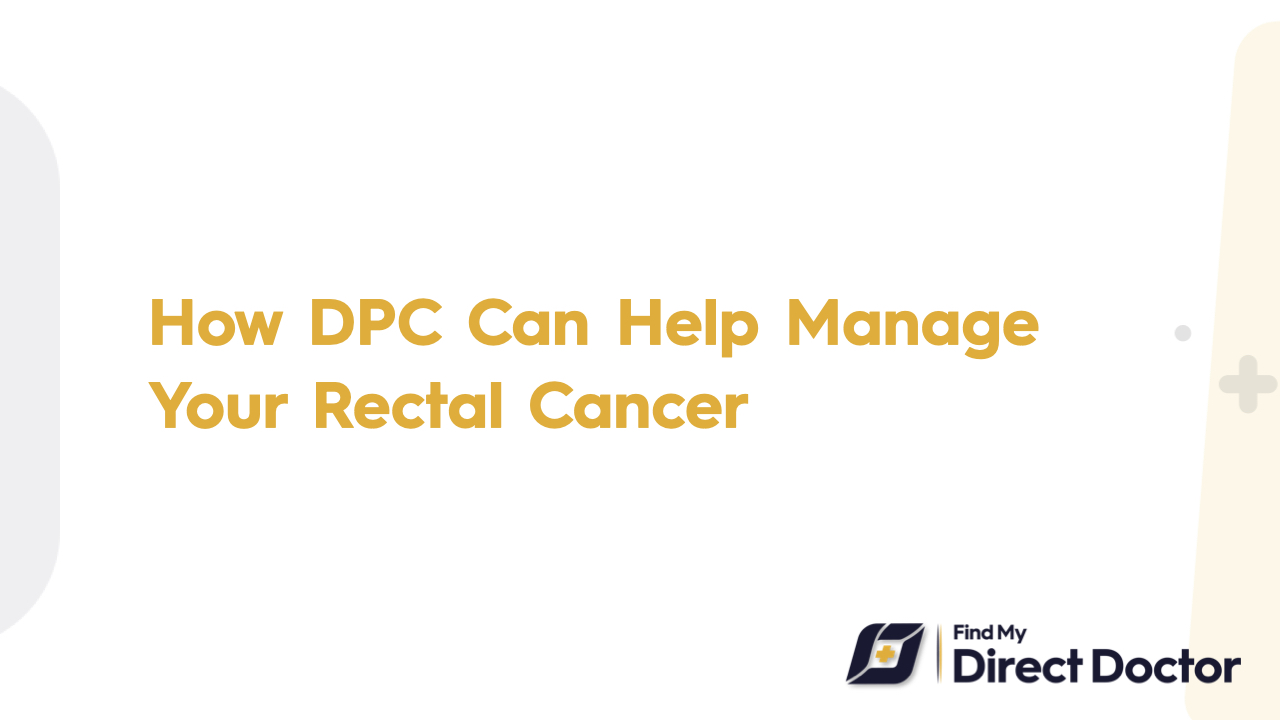



One kind of cancer that starts in the rectum, the final segment of the large intestine, is called rectal cancer. Usually, it arises when rectum cells proliferate out of control and create a tumor. Changes in bowel patterns, such as chronic diarrhea or constipation, blood in the stool, inexplicable weight loss, abdominal pain, and exhaustion, are typical signs of rectal cancer. Additionally, people may feel as though their bowel movements are not complete or they may have rectal bleeding. Effective treatment and management of these symptoms depend on early discovery through screening.

By providing individualized and ongoing care, Direct Primary Care (DPC) can be extremely helpful in the management of rectal cancer. DPC guarantees that patients have continuous support during the diagnosis and treatment process by giving them direct contact to their primary care physician. Early symptom detection, careful observation, and prompt referral to experts like gastroenterologists or oncologists are all made possible by DPC. This paradigm guarantees that patients receive close monitoring, prompt interventions, and a thorough approach to condition management.
The easier access to care is one of the main advantages of DPC for patients with rectal cancer. DPC enables comprehensive, individualized consultations that are tailored to the patient's needs because there are fewer individuals and more time spent with each individual. Patients gain from ongoing, integrated care that prioritizes preventive and general health and includes faster follow-ups. Furthermore, DPC offers more schedule flexibility, cutting down on wait times for testing and consultations—a crucial feature for patients managing a complicated illness like rectal cancer.
Rectal cancer treatment in DPC is very individualized. Together, you and your primary care physician develop a personalized care plan that considers your particular medical background, symptoms, and preferences. This could entail helping you make lifestyle adjustments that could enhance your general health, supporting you during chemotherapy, or coordinating your treatment with oncologists. Through proactive care and frequent check-ins, DPC makes sure you have the medical and emotional support you need during your cancer journey, which improves outcomes and takes a more comprehensive approach to your health.
Previous Post
Next Post